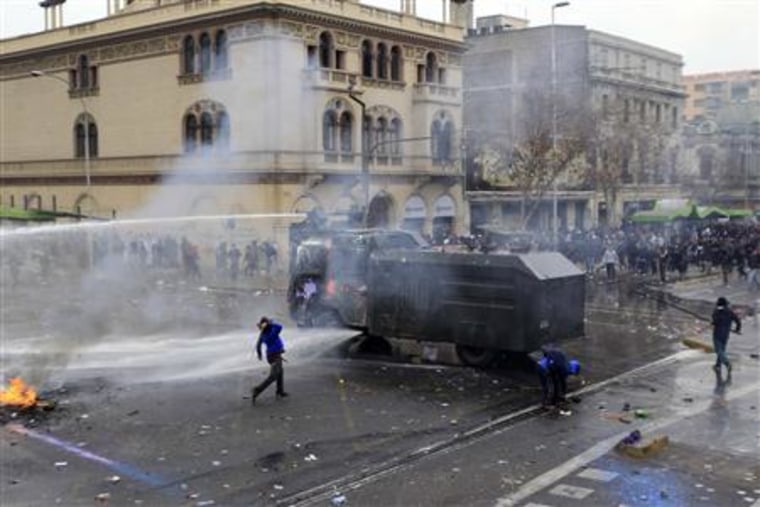Protesters battled police in Chile's capital on Thursday, the second day of a two-day strike against unpopular President Sebastian Pinera that was marked by sporadic looting but had no impact on the vital mining sector.
Youths blocked roads, threw rocks and set fire to piles of trash at some intersections in Santiago and other cities to block traffic. Police used water cannon and tear gas to defuse the latest rash of social unrest against the conservative billionaire Pinera's policies.
The government said hundreds of people had been detained since Wednesday and several police officers badly wounded -- two of them shot -- as violence flared overnight when dozens of shops and supermarkets were looted and buses damaged.
Led by students demanding free education, hundreds of thousands of people have taken to the streets in recent months to call for greater distribution of the spoils of a copper price boom in the world's top producer of the metal.
An estimated 50,000 marched in Santiago on Thursday, with many protesting peacefully -- one dressed as Argentine revolutionary Ernesto "Che" Guevara and another as Chile's former socialist president, Salvador Allende -- although clashes with police increased as the day went on.
"Chilean society has reached a point at which we can't stand being ignored anymore," said 21-year-old Rebeca Martinez, a music student who drummed on a tambourine as she protested in front of the Universidad de Chile, which has been taken over by protesting students for months.
"We've reached the point of maximum discontent," Martinez said, as dozens around her protested, waving Chilean flags and blowing horns next to one of Santiago's main avenues that was cut off and patrolled by police officers in full riot gear.
Sporadic looting
The government said only about 10 percent of public sector workers on Thursday had joined the strike called by Chile's main umbrella labor union, CUT.
"We've had numerous episodes of hooded protesters in small groups spreading out and damaging and looting different shops, businesses and supermarkets," said Rodrigo Ubilla, Interior Ministry undersecretary.
Public transportation was running, and operations at some of the world's biggest copper mines were not affected by the protests that also seek to pressure the government into raising wages and revamping the constitution and tax system.
While Latin America's model economy is seen expanding 6.6 percent this year and is an investor magnet thanks to prudent fiscal and monetary policies, many ordinary Chileans feel they are not sharing in Chile's economic miracle.
Investors, long used to economic stability, are weighing risk, although markets have taken the protests in stride.
"It's unlikely to affect direct foreign investment," said Fernando Soto, an analyst at Banchile Inversiones. "There could be some short-term effects on investment portfolios ... out of fear more than anything."
Workers at some of the world's biggest copper mines have staged strikes of their own to demand a bigger share of windfall copper profits. Workers at BHP Billiton's Escondida, the world's No.1 copper mine, halted a two-week strike earlier this month that stoked global supply fears.
Previous governments have faced one-day national strikes, but this was the first 48-hour national strike since the 1973-1990 Augusto Pinochet dictatorship. A recent poll showed Pinera to be the least popular president since Pinochet's rule ended.
Even a major Cabinet reshuffle last month, the second since Pinera took power in March 2010, has failed to quell unrest.
